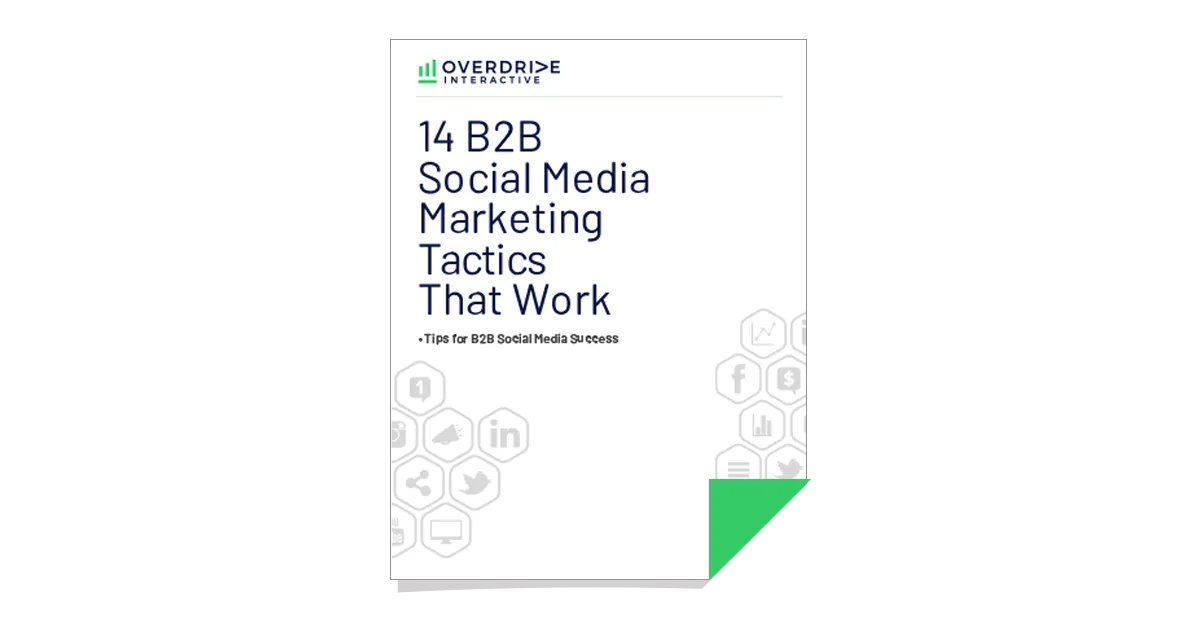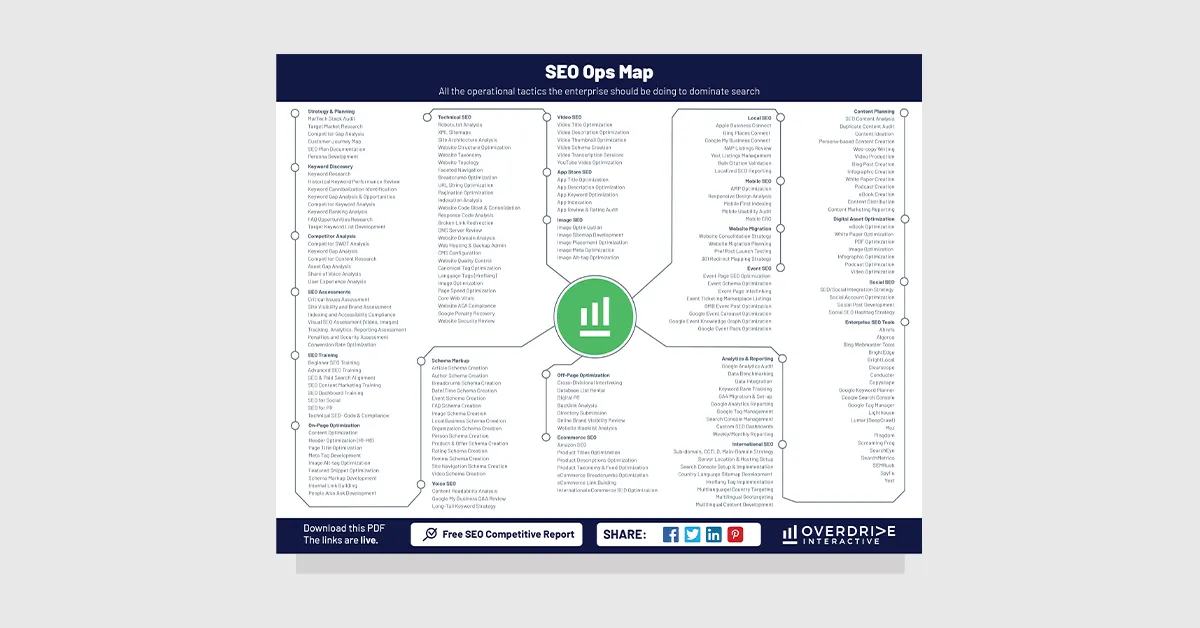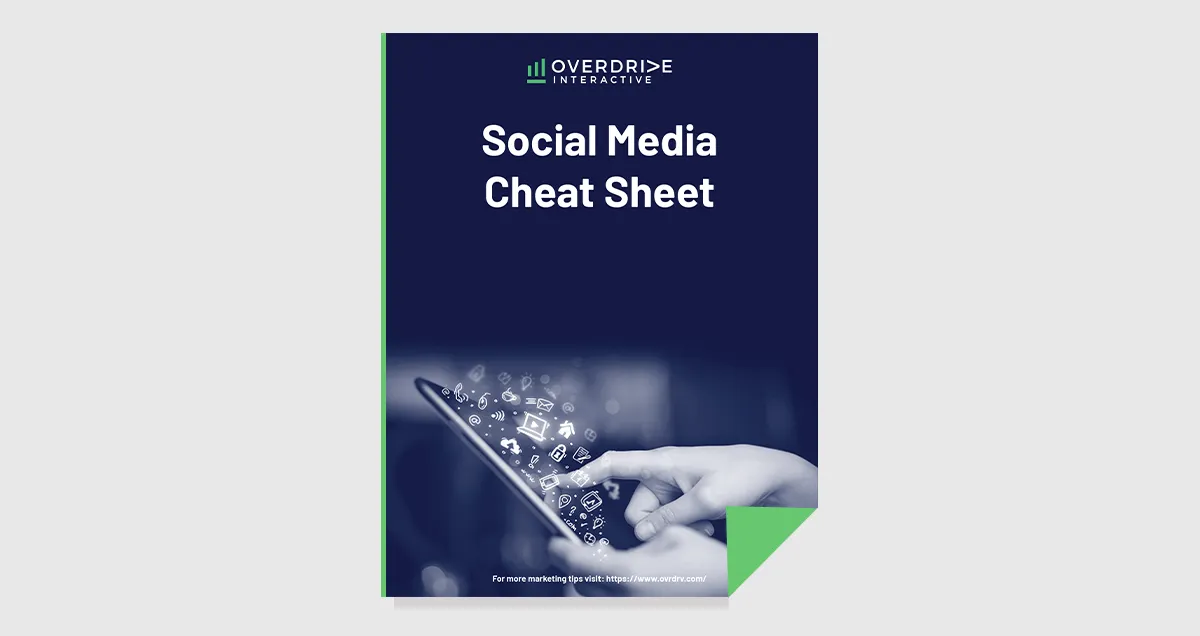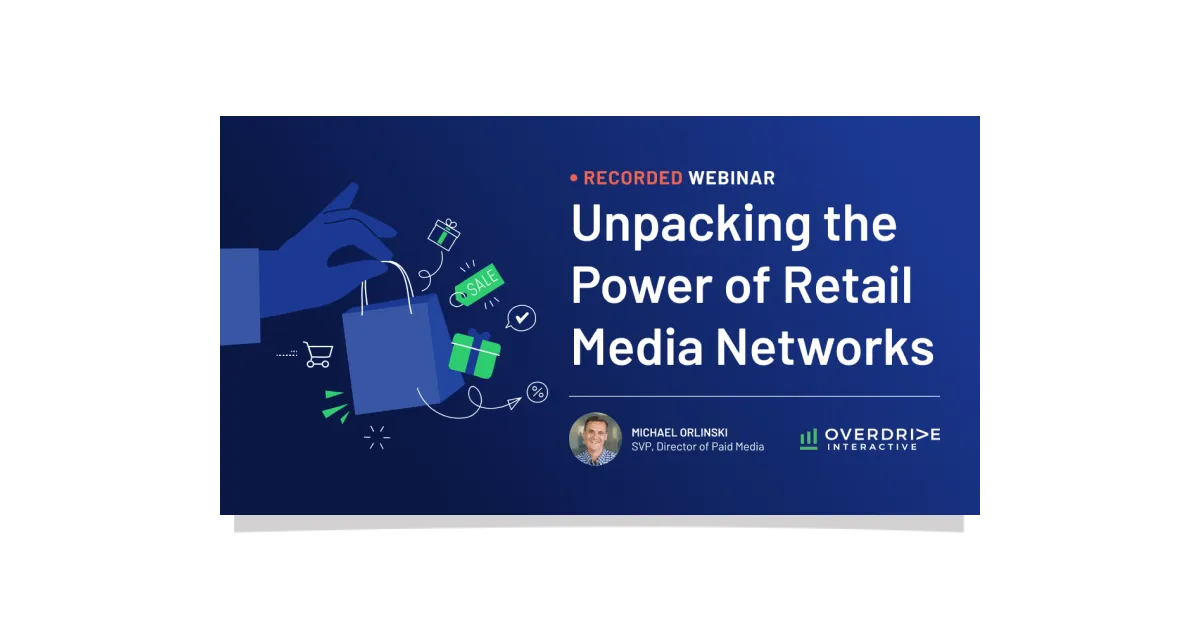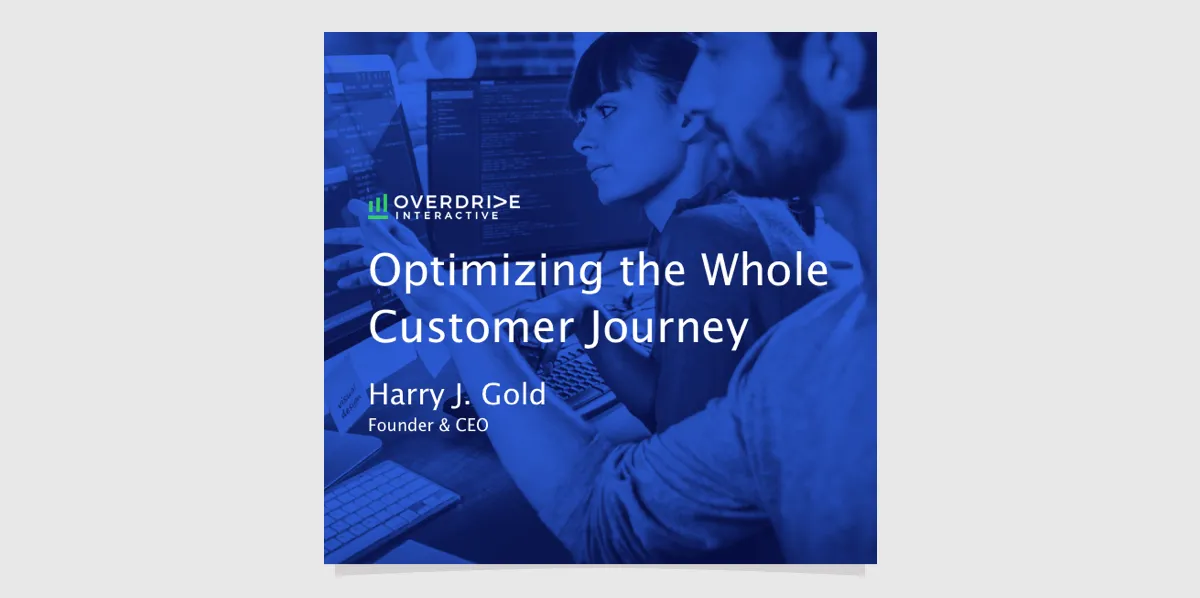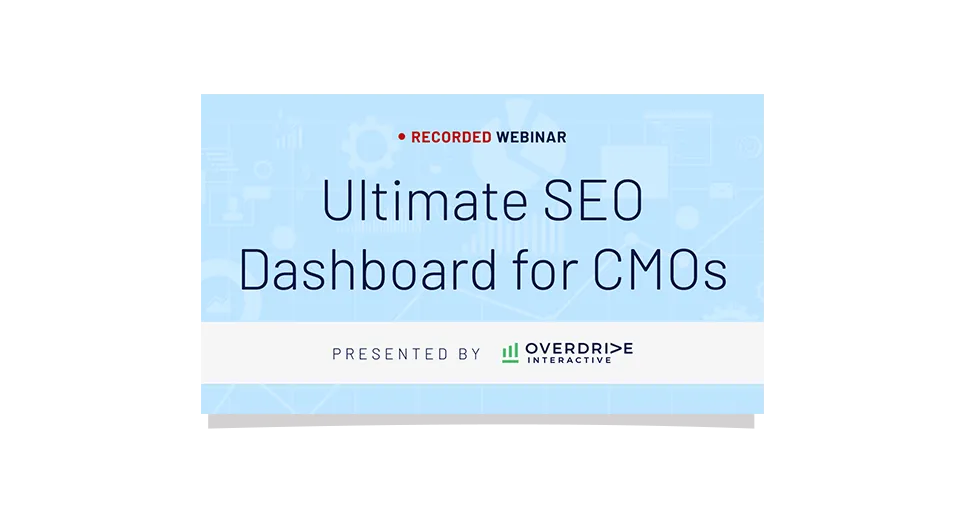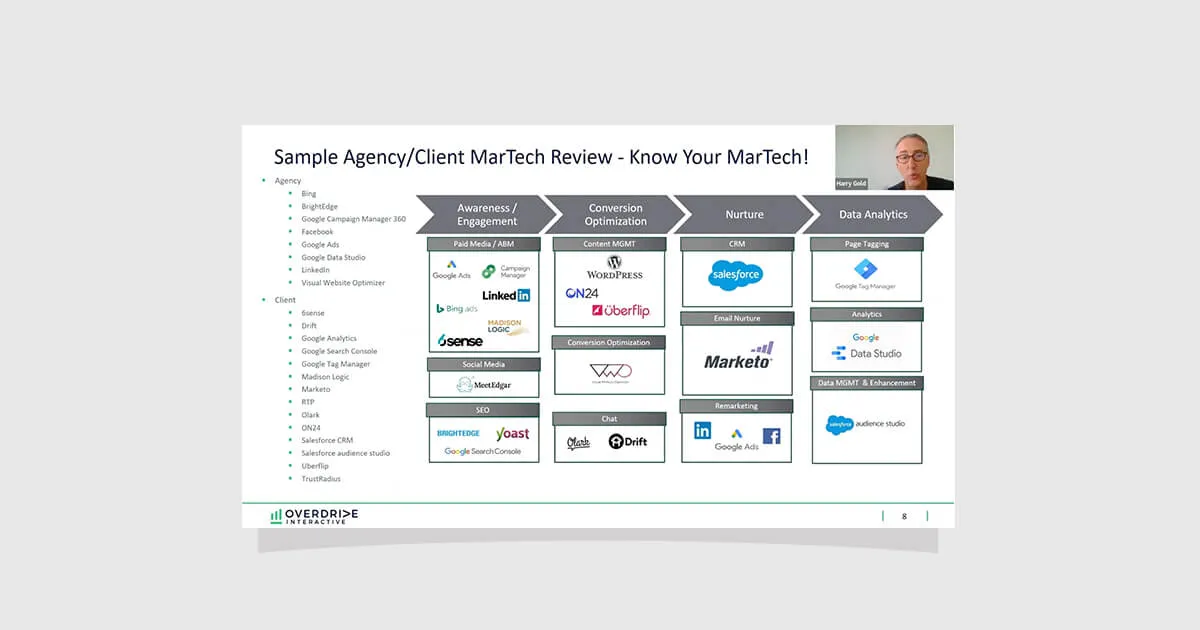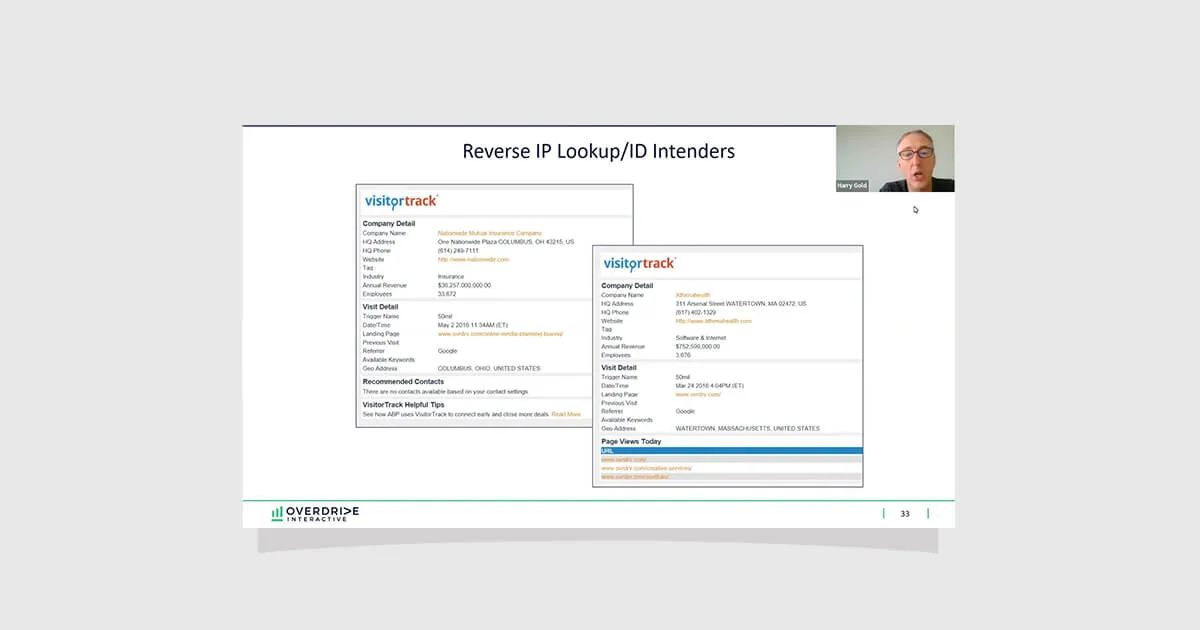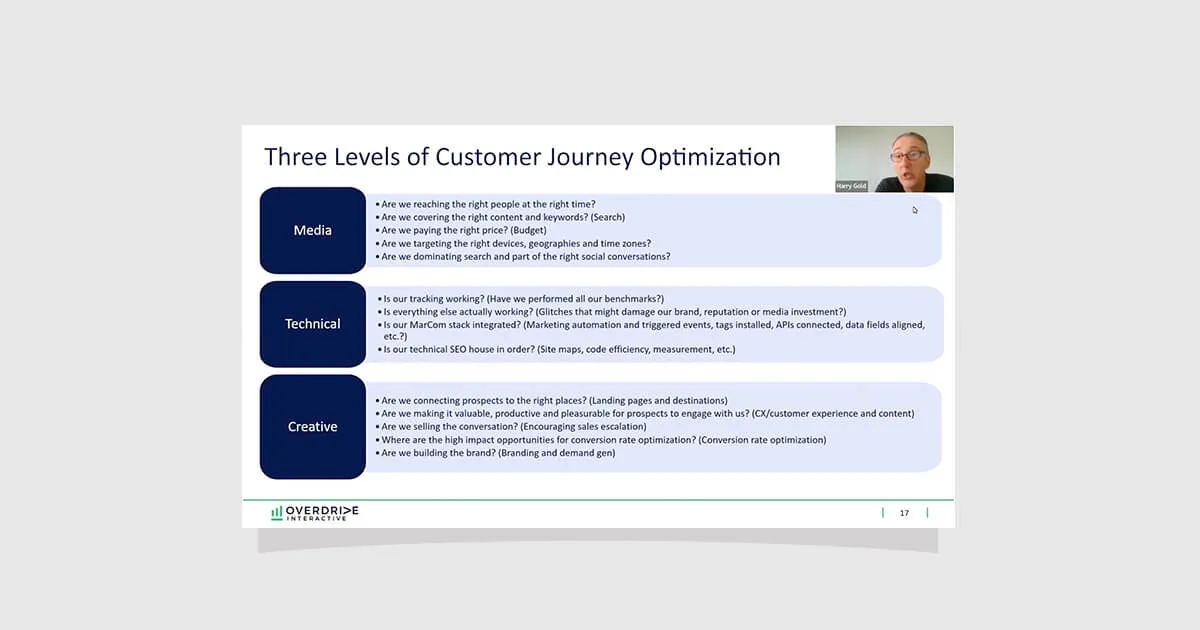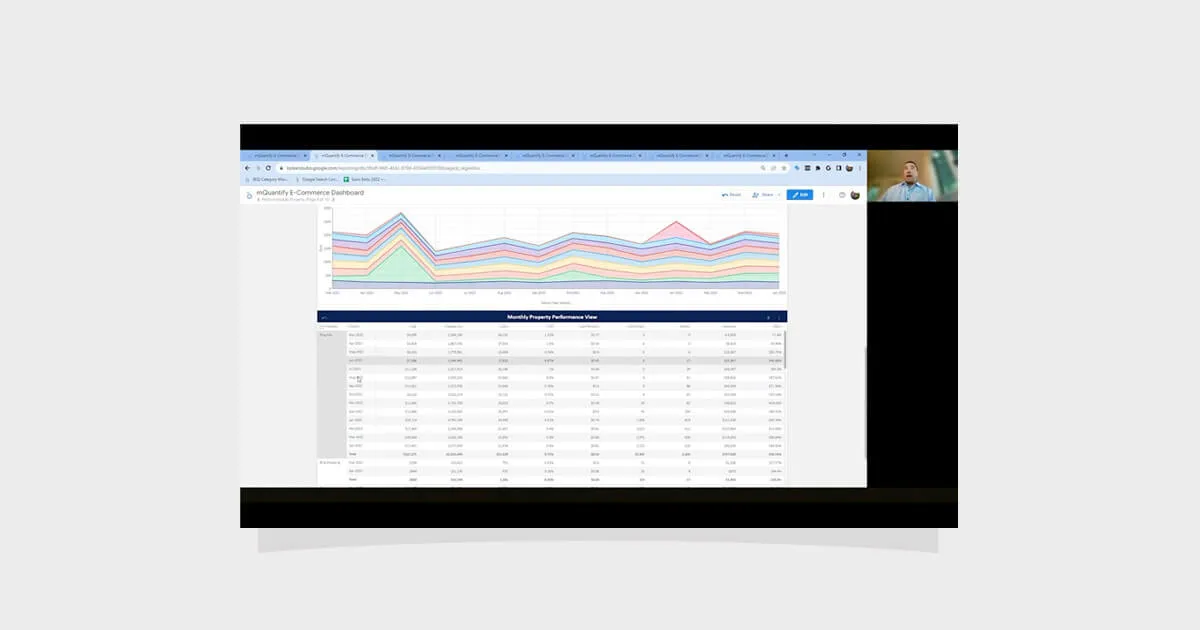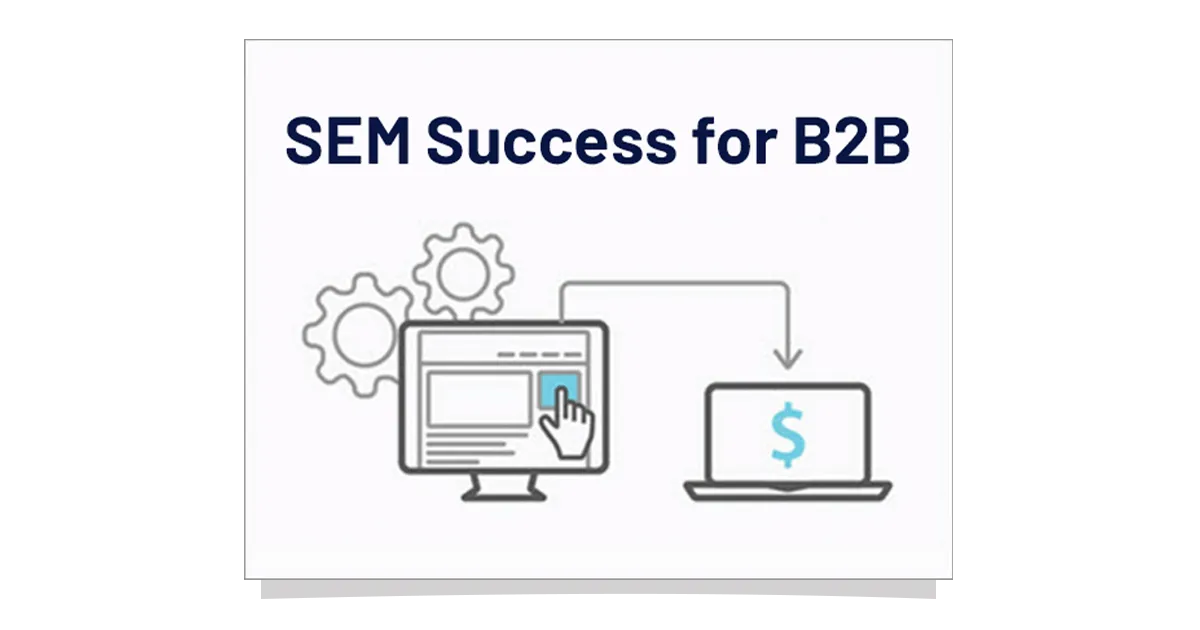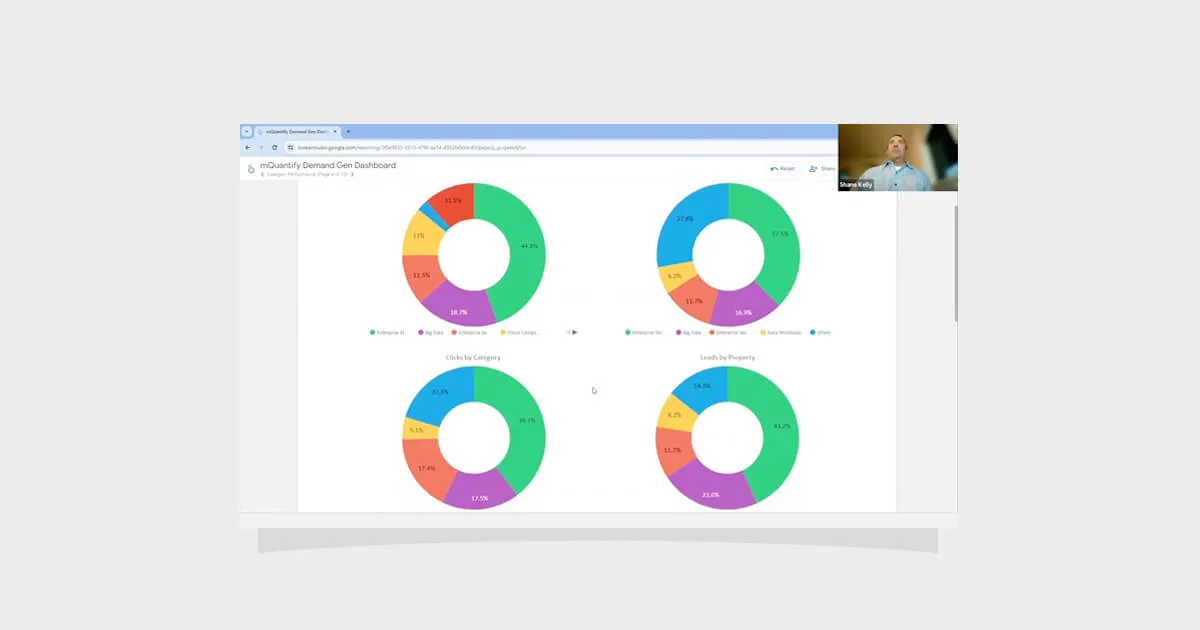LLMs.txt: The New Standard for AI Crawling
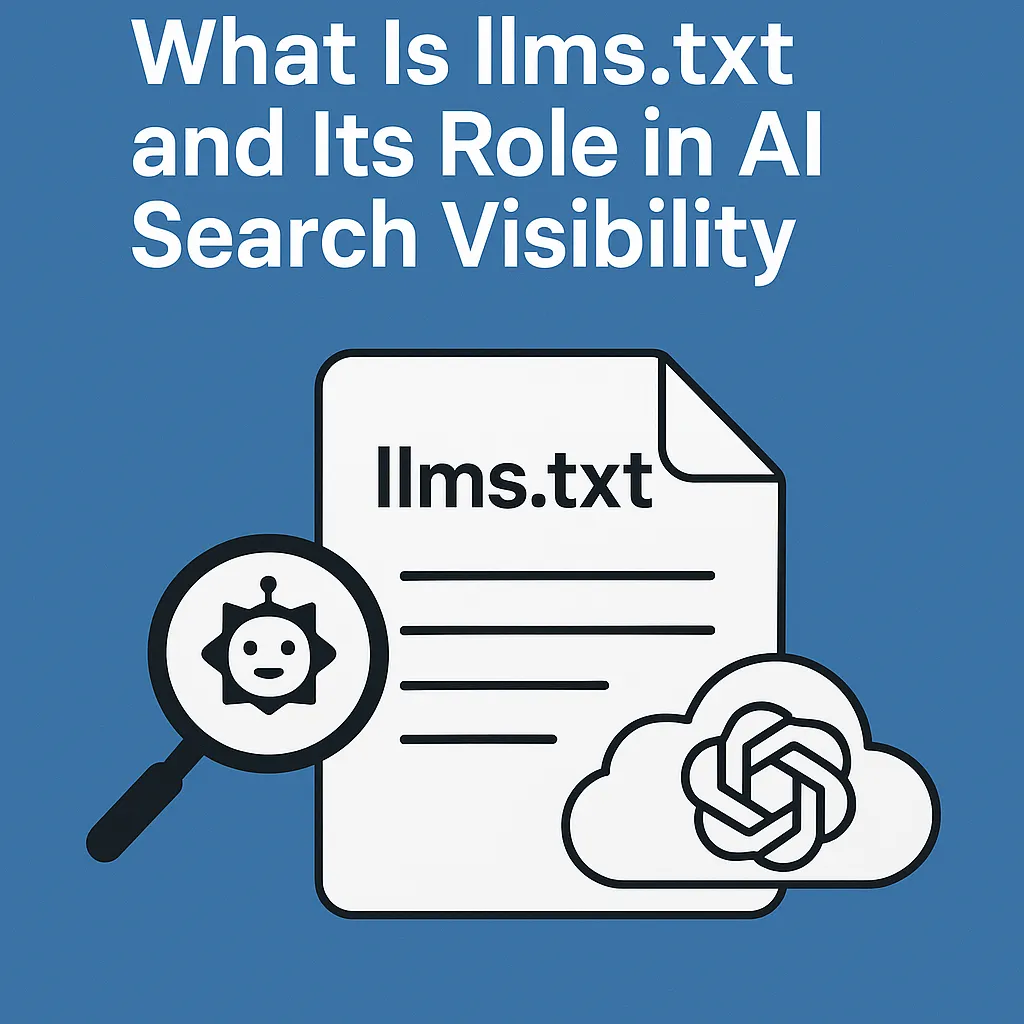
What Is llms.txt and Its Role in AI Search Visibility
As AI-generated search results, answer boxes, and conversational assistants continue reshaping how people discover and interact with online content, websites have a growing opportunity to increase AI-driven visibility. A new tool emerging to support this is llms.txt, a markdown-formatted text file placed at the root of a domain that highlights a site's most valuable, AI-friendly content for inference-time use by large language models (LLMs).
What Is llms.txt?
Early discussions around llms.txt led to a common misconception that it functioned like robots.txt, controlling AI agent crawling and training permissions. In reality, llms.txt is much closer in purpose to anXML sitemap, but specifically for LLM-friendly content. It acts as a curated map, guiding AI systems to the pages a site owner wants them to reference at inference time, helping those systems access the clearest, most relevant, and authoritative content available.
As llmstxt.org explains: "While sitemaps list all pages for search engines, llms.txt offers a curated overview for LLMs. It can complement robots.txt by providing context for allowed content. The file can also reference structured data markup used on the site, helping LLMs understand how to interpret this information in context."
The file is written in markdown and follows a simple, structured format:
· A single H1 heading naming the site or project
· A brief block quote summarizing the content included
· One or more categorized sections listing URLs to high-value, AI-digestible content
· An optional section for optional resources AI models can skip if needed
Here is an example of what a llms.txt file might look like:
# Example.com
> Optional description providing additional context as to the type of content in the file.
## CoreContent
- [SEOGuide](https://example.com/seo-guide): A beginner’s guide to Search EngineOptimization and how to increase organic traffic to your website.
- [FAQPage](https://example.com/faq/): A list of Frequently Asked Questions regarding digital marketing and increasing site traffic.
##Blog Content
- [How ToIncrease Organic Conversions](https://example.com/blog/how-to-increase-organic-conversions):A post describing 5 strategies for increasing organic conversion rates and steps for implementing them.
- [3 Strategies to Improve Site Sped](https://example.com/blog/3-strategies-to-improve-site-speed):A list of 3 expert strategies for improving site speed
## Optional
- [Whitepaper: The Impact of Core Web Vitals](https://example.com/resources/whitepapers/the-impact-of-core-web-vitals):An in-depth whitepaper documenting the finding of a study on the impact ofGoogle Core Web Vitals on organic traffic across the web.
Why It Matters for AI Traffic and SEO
Large language models prioritize content that is easy to find, clear, and structured for comprehension. While adoption of llms.txt is still in early stages and major LLM providers have not yet implemented support, the file serves as a strategic preparation for future AI-driven content discovery.
Without an llms.txt file in place, sites run the risk that AI systems may miss valuable content buried within a complex website or navigate inefficiently through unrelated pages when they do eventually support the standard. By providing a curated list of AI-ready URLs, llms.txt improves the likelihood that a website's best content will be surfaced and cited inAI-generated answers, increasing brand visibility and authority within emergingAI-driven discovery experiences.
The file can also be manually provided to AI systems through tools like MCP servers or custom integrations, making it valuable for developers and businesses creating their own AI-powered applications.
What Content Should (and ShouldNot) Be Included
The power of llms.txt lies in its selectivity. It is not meant to list every page on your site, but to surface the most valuable, structured, and authoritative content designed for easy AI comprehension and citation.
Content to include:
· Evergreen content that answers clear, specific questions
· Resource hubs, how-to guides, and pillar content
· Well-structured blog posts, FAQs, product overviews, and help center articles
· Pages designed with short paragraphs, clear headings, bullet points, and scannable formatting
· Content optimized for comprehension, clarity, and logical flow
Content to avoid including:
· Marketing-heavy landing pages, homepages, or generic brand pages
· Proprietary or sensitive material that could be misrepresented or quoted out of context
· Content that relies heavily on interactivity, visual elements, or contextual site navigation
· Time-sensitive promotions or seasonal content likely to become outdated
· Pages with ambiguous or overly broad topics that lack a clear, defined scope
Current LLM Support Status
LLMs ThatCurrently Support llms.txt:
· LangChain/LangGraph:Native support through MCP servers
· Custom AI implementations: Various smaller AI tools and chatbots that explicitly check for llms.txt files
· Development tools: Some IDE plugins and AI coding assistants in beta testing
LLMs That Do NotCurrently Support llms.txt:
· OpenAI(ChatGPT, GPT-4): No native support for llms.txt files
· Anthropic(Claude): No native support for llms.txt files
· Google(Gemini, Bard): No native support for llms.txt files
· Microsoft(Copilot): No native support for llms.txt files
· Meta(Llama-based systems): No native support for llms.txt files
As of July 2025, the three major AI platform providers—OpenAI, Google, and Anthropic—have not implemented native support for llms.txt files in their primary AI products. This lack of adoption by major players has led to questions about the protocol's immediate practical value for most websites.
Implementation Considerations
Current Reality:Since major LLM providers like OpenAI, Google, and Anthropic don't yet support llms.txt files, the immediate impact on AI visibility is limited. However, the file can be valuable for:
· Custom AI implementations that developers build using the llms.txt standard
· Future-proofing your site for when major providers do adopt the standard
· Manual integration with AI tools through MCP servers or similar protocols
· Demonstrating AI-readiness to stakeholders and search engines
ManualImplementation: For organizations wanting to leverage llms.txt today, content can be manually provided to AI systems through:
· MCP (Model Context Protocol) servers
· Custom API integrations
· Developer tools that specifically check for llms.txt files
· Internal AI applications that can be configured to use the standard
Recommendation
We recommend implementing llms.txt as a forward-looking strategy, despite limited current LLM support. It is a low-effort, high-value tool for preparing your site for future AI-driven content discovery. Focus on curating your best, evergreen, AI-friendly resources while excluding sensitive, promotional, or ambiguous pages.
As AI-driven search features continue to evolve and major providers potentially adopt the standard, llms.txt offers a proactive way to improve inference-time discoverability, surface your most authoritative content, and increase the likelihood of being cited in AI-generated responses.The specification is gaining traction in the developer community, and early implementation positions your site advantageously for future AI integration.
Consider llms.txt as part of a comprehensiveAI-readiness strategy, alongside traditional SEO practices and structured data markup.
Navigating the fast-changing world of AI-driven search isn’t easy—but that’s where we come in. At Overdrive Interactive, we help brands prepare for the future of discovery, from optimizing for AI-friendly content to staying ahead of emerging standards like llms.txt. Want to make sure your brand shows up where it matters most—whether it’s in search results or AI-generated answers? Your team just got bigger. Say hello.
Sources
· LLMs-txt: https://llmstxt.org/
· Search Engine Land: https://searchengineland.com/llms-txt-proposed-standard-453676
· Ahrefs Analysis: https://ahrefs.com/blog/what-is-llms-txt/
· PPC Land Industry Report: https://ppc.land/llms-txt-adoption-stalls-as-major-ai-platforms-ignore-proposed-standard/
LLMs.txt: The New Standard for AI Crawling

Download the guide to:
What Is llms.txt and Its Role in AI Search Visibility
As AI-generated search results, answer boxes, and conversational assistants continue reshaping how people discover and interact with online content, websites have a growing opportunity to increase AI-driven visibility. A new tool emerging to support this is llms.txt, a markdown-formatted text file placed at the root of a domain that highlights a site's most valuable, AI-friendly content for inference-time use by large language models (LLMs).
What Is llms.txt?
Early discussions around llms.txt led to a common misconception that it functioned like robots.txt, controlling AI agent crawling and training permissions. In reality, llms.txt is much closer in purpose to anXML sitemap, but specifically for LLM-friendly content. It acts as a curated map, guiding AI systems to the pages a site owner wants them to reference at inference time, helping those systems access the clearest, most relevant, and authoritative content available.
As llmstxt.org explains: "While sitemaps list all pages for search engines, llms.txt offers a curated overview for LLMs. It can complement robots.txt by providing context for allowed content. The file can also reference structured data markup used on the site, helping LLMs understand how to interpret this information in context."
The file is written in markdown and follows a simple, structured format:
· A single H1 heading naming the site or project
· A brief block quote summarizing the content included
· One or more categorized sections listing URLs to high-value, AI-digestible content
· An optional section for optional resources AI models can skip if needed
Here is an example of what a llms.txt file might look like:
# Example.com
> Optional description providing additional context as to the type of content in the file.
## CoreContent
- [SEOGuide](https://example.com/seo-guide): A beginner’s guide to Search EngineOptimization and how to increase organic traffic to your website.
- [FAQPage](https://example.com/faq/): A list of Frequently Asked Questions regarding digital marketing and increasing site traffic.
##Blog Content
- [How ToIncrease Organic Conversions](https://example.com/blog/how-to-increase-organic-conversions):A post describing 5 strategies for increasing organic conversion rates and steps for implementing them.
- [3 Strategies to Improve Site Sped](https://example.com/blog/3-strategies-to-improve-site-speed):A list of 3 expert strategies for improving site speed
## Optional
- [Whitepaper: The Impact of Core Web Vitals](https://example.com/resources/whitepapers/the-impact-of-core-web-vitals):An in-depth whitepaper documenting the finding of a study on the impact ofGoogle Core Web Vitals on organic traffic across the web.
Why It Matters for AI Traffic and SEO
Large language models prioritize content that is easy to find, clear, and structured for comprehension. While adoption of llms.txt is still in early stages and major LLM providers have not yet implemented support, the file serves as a strategic preparation for future AI-driven content discovery.
Without an llms.txt file in place, sites run the risk that AI systems may miss valuable content buried within a complex website or navigate inefficiently through unrelated pages when they do eventually support the standard. By providing a curated list of AI-ready URLs, llms.txt improves the likelihood that a website's best content will be surfaced and cited inAI-generated answers, increasing brand visibility and authority within emergingAI-driven discovery experiences.
The file can also be manually provided to AI systems through tools like MCP servers or custom integrations, making it valuable for developers and businesses creating their own AI-powered applications.
What Content Should (and ShouldNot) Be Included
The power of llms.txt lies in its selectivity. It is not meant to list every page on your site, but to surface the most valuable, structured, and authoritative content designed for easy AI comprehension and citation.
Content to include:
· Evergreen content that answers clear, specific questions
· Resource hubs, how-to guides, and pillar content
· Well-structured blog posts, FAQs, product overviews, and help center articles
· Pages designed with short paragraphs, clear headings, bullet points, and scannable formatting
· Content optimized for comprehension, clarity, and logical flow
Content to avoid including:
· Marketing-heavy landing pages, homepages, or generic brand pages
· Proprietary or sensitive material that could be misrepresented or quoted out of context
· Content that relies heavily on interactivity, visual elements, or contextual site navigation
· Time-sensitive promotions or seasonal content likely to become outdated
· Pages with ambiguous or overly broad topics that lack a clear, defined scope
Current LLM Support Status
LLMs ThatCurrently Support llms.txt:
· LangChain/LangGraph:Native support through MCP servers
· Custom AI implementations: Various smaller AI tools and chatbots that explicitly check for llms.txt files
· Development tools: Some IDE plugins and AI coding assistants in beta testing
LLMs That Do NotCurrently Support llms.txt:
· OpenAI(ChatGPT, GPT-4): No native support for llms.txt files
· Anthropic(Claude): No native support for llms.txt files
· Google(Gemini, Bard): No native support for llms.txt files
· Microsoft(Copilot): No native support for llms.txt files
· Meta(Llama-based systems): No native support for llms.txt files
As of July 2025, the three major AI platform providers—OpenAI, Google, and Anthropic—have not implemented native support for llms.txt files in their primary AI products. This lack of adoption by major players has led to questions about the protocol's immediate practical value for most websites.
Implementation Considerations
Current Reality:Since major LLM providers like OpenAI, Google, and Anthropic don't yet support llms.txt files, the immediate impact on AI visibility is limited. However, the file can be valuable for:
· Custom AI implementations that developers build using the llms.txt standard
· Future-proofing your site for when major providers do adopt the standard
· Manual integration with AI tools through MCP servers or similar protocols
· Demonstrating AI-readiness to stakeholders and search engines
ManualImplementation: For organizations wanting to leverage llms.txt today, content can be manually provided to AI systems through:
· MCP (Model Context Protocol) servers
· Custom API integrations
· Developer tools that specifically check for llms.txt files
· Internal AI applications that can be configured to use the standard
Recommendation
We recommend implementing llms.txt as a forward-looking strategy, despite limited current LLM support. It is a low-effort, high-value tool for preparing your site for future AI-driven content discovery. Focus on curating your best, evergreen, AI-friendly resources while excluding sensitive, promotional, or ambiguous pages.
As AI-driven search features continue to evolve and major providers potentially adopt the standard, llms.txt offers a proactive way to improve inference-time discoverability, surface your most authoritative content, and increase the likelihood of being cited in AI-generated responses.The specification is gaining traction in the developer community, and early implementation positions your site advantageously for future AI integration.
Consider llms.txt as part of a comprehensiveAI-readiness strategy, alongside traditional SEO practices and structured data markup.
Navigating the fast-changing world of AI-driven search isn’t easy—but that’s where we come in. At Overdrive Interactive, we help brands prepare for the future of discovery, from optimizing for AI-friendly content to staying ahead of emerging standards like llms.txt. Want to make sure your brand shows up where it matters most—whether it’s in search results or AI-generated answers? Your team just got bigger. Say hello.
Sources
· LLMs-txt: https://llmstxt.org/
· Search Engine Land: https://searchengineland.com/llms-txt-proposed-standard-453676
· Ahrefs Analysis: https://ahrefs.com/blog/what-is-llms-txt/
· PPC Land Industry Report: https://ppc.land/llms-txt-adoption-stalls-as-major-ai-platforms-ignore-proposed-standard/
LLMs.txt: The New Standard for AI Crawling

Download the guide to:
What Is llms.txt and Its Role in AI Search Visibility
As AI-generated search results, answer boxes, and conversational assistants continue reshaping how people discover and interact with online content, websites have a growing opportunity to increase AI-driven visibility. A new tool emerging to support this is llms.txt, a markdown-formatted text file placed at the root of a domain that highlights a site's most valuable, AI-friendly content for inference-time use by large language models (LLMs).
What Is llms.txt?
Early discussions around llms.txt led to a common misconception that it functioned like robots.txt, controlling AI agent crawling and training permissions. In reality, llms.txt is much closer in purpose to anXML sitemap, but specifically for LLM-friendly content. It acts as a curated map, guiding AI systems to the pages a site owner wants them to reference at inference time, helping those systems access the clearest, most relevant, and authoritative content available.
As llmstxt.org explains: "While sitemaps list all pages for search engines, llms.txt offers a curated overview for LLMs. It can complement robots.txt by providing context for allowed content. The file can also reference structured data markup used on the site, helping LLMs understand how to interpret this information in context."
The file is written in markdown and follows a simple, structured format:
· A single H1 heading naming the site or project
· A brief block quote summarizing the content included
· One or more categorized sections listing URLs to high-value, AI-digestible content
· An optional section for optional resources AI models can skip if needed
Here is an example of what a llms.txt file might look like:
# Example.com
> Optional description providing additional context as to the type of content in the file.
## CoreContent
- [SEOGuide](https://example.com/seo-guide): A beginner’s guide to Search EngineOptimization and how to increase organic traffic to your website.
- [FAQPage](https://example.com/faq/): A list of Frequently Asked Questions regarding digital marketing and increasing site traffic.
##Blog Content
- [How ToIncrease Organic Conversions](https://example.com/blog/how-to-increase-organic-conversions):A post describing 5 strategies for increasing organic conversion rates and steps for implementing them.
- [3 Strategies to Improve Site Sped](https://example.com/blog/3-strategies-to-improve-site-speed):A list of 3 expert strategies for improving site speed
## Optional
- [Whitepaper: The Impact of Core Web Vitals](https://example.com/resources/whitepapers/the-impact-of-core-web-vitals):An in-depth whitepaper documenting the finding of a study on the impact ofGoogle Core Web Vitals on organic traffic across the web.
Why It Matters for AI Traffic and SEO
Large language models prioritize content that is easy to find, clear, and structured for comprehension. While adoption of llms.txt is still in early stages and major LLM providers have not yet implemented support, the file serves as a strategic preparation for future AI-driven content discovery.
Without an llms.txt file in place, sites run the risk that AI systems may miss valuable content buried within a complex website or navigate inefficiently through unrelated pages when they do eventually support the standard. By providing a curated list of AI-ready URLs, llms.txt improves the likelihood that a website's best content will be surfaced and cited inAI-generated answers, increasing brand visibility and authority within emergingAI-driven discovery experiences.
The file can also be manually provided to AI systems through tools like MCP servers or custom integrations, making it valuable for developers and businesses creating their own AI-powered applications.
What Content Should (and ShouldNot) Be Included
The power of llms.txt lies in its selectivity. It is not meant to list every page on your site, but to surface the most valuable, structured, and authoritative content designed for easy AI comprehension and citation.
Content to include:
· Evergreen content that answers clear, specific questions
· Resource hubs, how-to guides, and pillar content
· Well-structured blog posts, FAQs, product overviews, and help center articles
· Pages designed with short paragraphs, clear headings, bullet points, and scannable formatting
· Content optimized for comprehension, clarity, and logical flow
Content to avoid including:
· Marketing-heavy landing pages, homepages, or generic brand pages
· Proprietary or sensitive material that could be misrepresented or quoted out of context
· Content that relies heavily on interactivity, visual elements, or contextual site navigation
· Time-sensitive promotions or seasonal content likely to become outdated
· Pages with ambiguous or overly broad topics that lack a clear, defined scope
Current LLM Support Status
LLMs ThatCurrently Support llms.txt:
· LangChain/LangGraph:Native support through MCP servers
· Custom AI implementations: Various smaller AI tools and chatbots that explicitly check for llms.txt files
· Development tools: Some IDE plugins and AI coding assistants in beta testing
LLMs That Do NotCurrently Support llms.txt:
· OpenAI(ChatGPT, GPT-4): No native support for llms.txt files
· Anthropic(Claude): No native support for llms.txt files
· Google(Gemini, Bard): No native support for llms.txt files
· Microsoft(Copilot): No native support for llms.txt files
· Meta(Llama-based systems): No native support for llms.txt files
As of July 2025, the three major AI platform providers—OpenAI, Google, and Anthropic—have not implemented native support for llms.txt files in their primary AI products. This lack of adoption by major players has led to questions about the protocol's immediate practical value for most websites.
Implementation Considerations
Current Reality:Since major LLM providers like OpenAI, Google, and Anthropic don't yet support llms.txt files, the immediate impact on AI visibility is limited. However, the file can be valuable for:
· Custom AI implementations that developers build using the llms.txt standard
· Future-proofing your site for when major providers do adopt the standard
· Manual integration with AI tools through MCP servers or similar protocols
· Demonstrating AI-readiness to stakeholders and search engines
ManualImplementation: For organizations wanting to leverage llms.txt today, content can be manually provided to AI systems through:
· MCP (Model Context Protocol) servers
· Custom API integrations
· Developer tools that specifically check for llms.txt files
· Internal AI applications that can be configured to use the standard
Recommendation
We recommend implementing llms.txt as a forward-looking strategy, despite limited current LLM support. It is a low-effort, high-value tool for preparing your site for future AI-driven content discovery. Focus on curating your best, evergreen, AI-friendly resources while excluding sensitive, promotional, or ambiguous pages.
As AI-driven search features continue to evolve and major providers potentially adopt the standard, llms.txt offers a proactive way to improve inference-time discoverability, surface your most authoritative content, and increase the likelihood of being cited in AI-generated responses.The specification is gaining traction in the developer community, and early implementation positions your site advantageously for future AI integration.
Consider llms.txt as part of a comprehensiveAI-readiness strategy, alongside traditional SEO practices and structured data markup.
Navigating the fast-changing world of AI-driven search isn’t easy—but that’s where we come in. At Overdrive Interactive, we help brands prepare for the future of discovery, from optimizing for AI-friendly content to staying ahead of emerging standards like llms.txt. Want to make sure your brand shows up where it matters most—whether it’s in search results or AI-generated answers? Your team just got bigger. Say hello.
Sources
· LLMs-txt: https://llmstxt.org/
· Search Engine Land: https://searchengineland.com/llms-txt-proposed-standard-453676
· Ahrefs Analysis: https://ahrefs.com/blog/what-is-llms-txt/
· PPC Land Industry Report: https://ppc.land/llms-txt-adoption-stalls-as-major-ai-platforms-ignore-proposed-standard/
LLMs.txt: The New Standard for AI Crawling

Key Insights From Our Research
What Is llms.txt and Its Role in AI Search Visibility
As AI-generated search results, answer boxes, and conversational assistants continue reshaping how people discover and interact with online content, websites have a growing opportunity to increase AI-driven visibility. A new tool emerging to support this is llms.txt, a markdown-formatted text file placed at the root of a domain that highlights a site's most valuable, AI-friendly content for inference-time use by large language models (LLMs).
What Is llms.txt?
Early discussions around llms.txt led to a common misconception that it functioned like robots.txt, controlling AI agent crawling and training permissions. In reality, llms.txt is much closer in purpose to anXML sitemap, but specifically for LLM-friendly content. It acts as a curated map, guiding AI systems to the pages a site owner wants them to reference at inference time, helping those systems access the clearest, most relevant, and authoritative content available.
As llmstxt.org explains: "While sitemaps list all pages for search engines, llms.txt offers a curated overview for LLMs. It can complement robots.txt by providing context for allowed content. The file can also reference structured data markup used on the site, helping LLMs understand how to interpret this information in context."
The file is written in markdown and follows a simple, structured format:
· A single H1 heading naming the site or project
· A brief block quote summarizing the content included
· One or more categorized sections listing URLs to high-value, AI-digestible content
· An optional section for optional resources AI models can skip if needed
Here is an example of what a llms.txt file might look like:
# Example.com
> Optional description providing additional context as to the type of content in the file.
## CoreContent
- [SEOGuide](https://example.com/seo-guide): A beginner’s guide to Search EngineOptimization and how to increase organic traffic to your website.
- [FAQPage](https://example.com/faq/): A list of Frequently Asked Questions regarding digital marketing and increasing site traffic.
##Blog Content
- [How ToIncrease Organic Conversions](https://example.com/blog/how-to-increase-organic-conversions):A post describing 5 strategies for increasing organic conversion rates and steps for implementing them.
- [3 Strategies to Improve Site Sped](https://example.com/blog/3-strategies-to-improve-site-speed):A list of 3 expert strategies for improving site speed
## Optional
- [Whitepaper: The Impact of Core Web Vitals](https://example.com/resources/whitepapers/the-impact-of-core-web-vitals):An in-depth whitepaper documenting the finding of a study on the impact ofGoogle Core Web Vitals on organic traffic across the web.
Why It Matters for AI Traffic and SEO
Large language models prioritize content that is easy to find, clear, and structured for comprehension. While adoption of llms.txt is still in early stages and major LLM providers have not yet implemented support, the file serves as a strategic preparation for future AI-driven content discovery.
Without an llms.txt file in place, sites run the risk that AI systems may miss valuable content buried within a complex website or navigate inefficiently through unrelated pages when they do eventually support the standard. By providing a curated list of AI-ready URLs, llms.txt improves the likelihood that a website's best content will be surfaced and cited inAI-generated answers, increasing brand visibility and authority within emergingAI-driven discovery experiences.
The file can also be manually provided to AI systems through tools like MCP servers or custom integrations, making it valuable for developers and businesses creating their own AI-powered applications.
What Content Should (and ShouldNot) Be Included
The power of llms.txt lies in its selectivity. It is not meant to list every page on your site, but to surface the most valuable, structured, and authoritative content designed for easy AI comprehension and citation.
Content to include:
· Evergreen content that answers clear, specific questions
· Resource hubs, how-to guides, and pillar content
· Well-structured blog posts, FAQs, product overviews, and help center articles
· Pages designed with short paragraphs, clear headings, bullet points, and scannable formatting
· Content optimized for comprehension, clarity, and logical flow
Content to avoid including:
· Marketing-heavy landing pages, homepages, or generic brand pages
· Proprietary or sensitive material that could be misrepresented or quoted out of context
· Content that relies heavily on interactivity, visual elements, or contextual site navigation
· Time-sensitive promotions or seasonal content likely to become outdated
· Pages with ambiguous or overly broad topics that lack a clear, defined scope
Current LLM Support Status
LLMs ThatCurrently Support llms.txt:
· LangChain/LangGraph:Native support through MCP servers
· Custom AI implementations: Various smaller AI tools and chatbots that explicitly check for llms.txt files
· Development tools: Some IDE plugins and AI coding assistants in beta testing
LLMs That Do NotCurrently Support llms.txt:
· OpenAI(ChatGPT, GPT-4): No native support for llms.txt files
· Anthropic(Claude): No native support for llms.txt files
· Google(Gemini, Bard): No native support for llms.txt files
· Microsoft(Copilot): No native support for llms.txt files
· Meta(Llama-based systems): No native support for llms.txt files
As of July 2025, the three major AI platform providers—OpenAI, Google, and Anthropic—have not implemented native support for llms.txt files in their primary AI products. This lack of adoption by major players has led to questions about the protocol's immediate practical value for most websites.
Implementation Considerations
Current Reality:Since major LLM providers like OpenAI, Google, and Anthropic don't yet support llms.txt files, the immediate impact on AI visibility is limited. However, the file can be valuable for:
· Custom AI implementations that developers build using the llms.txt standard
· Future-proofing your site for when major providers do adopt the standard
· Manual integration with AI tools through MCP servers or similar protocols
· Demonstrating AI-readiness to stakeholders and search engines
ManualImplementation: For organizations wanting to leverage llms.txt today, content can be manually provided to AI systems through:
· MCP (Model Context Protocol) servers
· Custom API integrations
· Developer tools that specifically check for llms.txt files
· Internal AI applications that can be configured to use the standard
Recommendation
We recommend implementing llms.txt as a forward-looking strategy, despite limited current LLM support. It is a low-effort, high-value tool for preparing your site for future AI-driven content discovery. Focus on curating your best, evergreen, AI-friendly resources while excluding sensitive, promotional, or ambiguous pages.
As AI-driven search features continue to evolve and major providers potentially adopt the standard, llms.txt offers a proactive way to improve inference-time discoverability, surface your most authoritative content, and increase the likelihood of being cited in AI-generated responses.The specification is gaining traction in the developer community, and early implementation positions your site advantageously for future AI integration.
Consider llms.txt as part of a comprehensiveAI-readiness strategy, alongside traditional SEO practices and structured data markup.
Navigating the fast-changing world of AI-driven search isn’t easy—but that’s where we come in. At Overdrive Interactive, we help brands prepare for the future of discovery, from optimizing for AI-friendly content to staying ahead of emerging standards like llms.txt. Want to make sure your brand shows up where it matters most—whether it’s in search results or AI-generated answers? Your team just got bigger. Say hello.
Sources
· LLMs-txt: https://llmstxt.org/
· Search Engine Land: https://searchengineland.com/llms-txt-proposed-standard-453676
· Ahrefs Analysis: https://ahrefs.com/blog/what-is-llms-txt/
· PPC Land Industry Report: https://ppc.land/llms-txt-adoption-stalls-as-major-ai-platforms-ignore-proposed-standard/
LLMs.txt: The New Standard for AI Crawling
Get the Complete Whitepaper
LLMs.txt: The New Standard for AI Crawling
What Is llms.txt and Its Role in AI Search Visibility
As AI-generated search results, answer boxes, and conversational assistants continue reshaping how people discover and interact with online content, websites have a growing opportunity to increase AI-driven visibility. A new tool emerging to support this is llms.txt, a markdown-formatted text file placed at the root of a domain that highlights a site's most valuable, AI-friendly content for inference-time use by large language models (LLMs).
What Is llms.txt?
Early discussions around llms.txt led to a common misconception that it functioned like robots.txt, controlling AI agent crawling and training permissions. In reality, llms.txt is much closer in purpose to anXML sitemap, but specifically for LLM-friendly content. It acts as a curated map, guiding AI systems to the pages a site owner wants them to reference at inference time, helping those systems access the clearest, most relevant, and authoritative content available.
As llmstxt.org explains: "While sitemaps list all pages for search engines, llms.txt offers a curated overview for LLMs. It can complement robots.txt by providing context for allowed content. The file can also reference structured data markup used on the site, helping LLMs understand how to interpret this information in context."
The file is written in markdown and follows a simple, structured format:
· A single H1 heading naming the site or project
· A brief block quote summarizing the content included
· One or more categorized sections listing URLs to high-value, AI-digestible content
· An optional section for optional resources AI models can skip if needed
Here is an example of what a llms.txt file might look like:
# Example.com
> Optional description providing additional context as to the type of content in the file.
## CoreContent
- [SEOGuide](https://example.com/seo-guide): A beginner’s guide to Search EngineOptimization and how to increase organic traffic to your website.
- [FAQPage](https://example.com/faq/): A list of Frequently Asked Questions regarding digital marketing and increasing site traffic.
##Blog Content
- [How ToIncrease Organic Conversions](https://example.com/blog/how-to-increase-organic-conversions):A post describing 5 strategies for increasing organic conversion rates and steps for implementing them.
- [3 Strategies to Improve Site Sped](https://example.com/blog/3-strategies-to-improve-site-speed):A list of 3 expert strategies for improving site speed
## Optional
- [Whitepaper: The Impact of Core Web Vitals](https://example.com/resources/whitepapers/the-impact-of-core-web-vitals):An in-depth whitepaper documenting the finding of a study on the impact ofGoogle Core Web Vitals on organic traffic across the web.
Why It Matters for AI Traffic and SEO
Large language models prioritize content that is easy to find, clear, and structured for comprehension. While adoption of llms.txt is still in early stages and major LLM providers have not yet implemented support, the file serves as a strategic preparation for future AI-driven content discovery.
Without an llms.txt file in place, sites run the risk that AI systems may miss valuable content buried within a complex website or navigate inefficiently through unrelated pages when they do eventually support the standard. By providing a curated list of AI-ready URLs, llms.txt improves the likelihood that a website's best content will be surfaced and cited inAI-generated answers, increasing brand visibility and authority within emergingAI-driven discovery experiences.
The file can also be manually provided to AI systems through tools like MCP servers or custom integrations, making it valuable for developers and businesses creating their own AI-powered applications.
What Content Should (and ShouldNot) Be Included
The power of llms.txt lies in its selectivity. It is not meant to list every page on your site, but to surface the most valuable, structured, and authoritative content designed for easy AI comprehension and citation.
Content to include:
· Evergreen content that answers clear, specific questions
· Resource hubs, how-to guides, and pillar content
· Well-structured blog posts, FAQs, product overviews, and help center articles
· Pages designed with short paragraphs, clear headings, bullet points, and scannable formatting
· Content optimized for comprehension, clarity, and logical flow
Content to avoid including:
· Marketing-heavy landing pages, homepages, or generic brand pages
· Proprietary or sensitive material that could be misrepresented or quoted out of context
· Content that relies heavily on interactivity, visual elements, or contextual site navigation
· Time-sensitive promotions or seasonal content likely to become outdated
· Pages with ambiguous or overly broad topics that lack a clear, defined scope
Current LLM Support Status
LLMs ThatCurrently Support llms.txt:
· LangChain/LangGraph:Native support through MCP servers
· Custom AI implementations: Various smaller AI tools and chatbots that explicitly check for llms.txt files
· Development tools: Some IDE plugins and AI coding assistants in beta testing
LLMs That Do NotCurrently Support llms.txt:
· OpenAI(ChatGPT, GPT-4): No native support for llms.txt files
· Anthropic(Claude): No native support for llms.txt files
· Google(Gemini, Bard): No native support for llms.txt files
· Microsoft(Copilot): No native support for llms.txt files
· Meta(Llama-based systems): No native support for llms.txt files
As of July 2025, the three major AI platform providers—OpenAI, Google, and Anthropic—have not implemented native support for llms.txt files in their primary AI products. This lack of adoption by major players has led to questions about the protocol's immediate practical value for most websites.
Implementation Considerations
Current Reality:Since major LLM providers like OpenAI, Google, and Anthropic don't yet support llms.txt files, the immediate impact on AI visibility is limited. However, the file can be valuable for:
· Custom AI implementations that developers build using the llms.txt standard
· Future-proofing your site for when major providers do adopt the standard
· Manual integration with AI tools through MCP servers or similar protocols
· Demonstrating AI-readiness to stakeholders and search engines
ManualImplementation: For organizations wanting to leverage llms.txt today, content can be manually provided to AI systems through:
· MCP (Model Context Protocol) servers
· Custom API integrations
· Developer tools that specifically check for llms.txt files
· Internal AI applications that can be configured to use the standard
Recommendation
We recommend implementing llms.txt as a forward-looking strategy, despite limited current LLM support. It is a low-effort, high-value tool for preparing your site for future AI-driven content discovery. Focus on curating your best, evergreen, AI-friendly resources while excluding sensitive, promotional, or ambiguous pages.
As AI-driven search features continue to evolve and major providers potentially adopt the standard, llms.txt offers a proactive way to improve inference-time discoverability, surface your most authoritative content, and increase the likelihood of being cited in AI-generated responses.The specification is gaining traction in the developer community, and early implementation positions your site advantageously for future AI integration.
Consider llms.txt as part of a comprehensiveAI-readiness strategy, alongside traditional SEO practices and structured data markup.
Navigating the fast-changing world of AI-driven search isn’t easy—but that’s where we come in. At Overdrive Interactive, we help brands prepare for the future of discovery, from optimizing for AI-friendly content to staying ahead of emerging standards like llms.txt. Want to make sure your brand shows up where it matters most—whether it’s in search results or AI-generated answers? Your team just got bigger. Say hello.
Sources
· LLMs-txt: https://llmstxt.org/
· Search Engine Land: https://searchengineland.com/llms-txt-proposed-standard-453676
· Ahrefs Analysis: https://ahrefs.com/blog/what-is-llms-txt/
· PPC Land Industry Report: https://ppc.land/llms-txt-adoption-stalls-as-major-ai-platforms-ignore-proposed-standard/

LLMs.txt: The New Standard for AI Crawling
Get the Slides
LLMs.txt: The New Standard for AI Crawling
What Is llms.txt and Its Role in AI Search Visibility
As AI-generated search results, answer boxes, and conversational assistants continue reshaping how people discover and interact with online content, websites have a growing opportunity to increase AI-driven visibility. A new tool emerging to support this is llms.txt, a markdown-formatted text file placed at the root of a domain that highlights a site's most valuable, AI-friendly content for inference-time use by large language models (LLMs).
What Is llms.txt?
Early discussions around llms.txt led to a common misconception that it functioned like robots.txt, controlling AI agent crawling and training permissions. In reality, llms.txt is much closer in purpose to anXML sitemap, but specifically for LLM-friendly content. It acts as a curated map, guiding AI systems to the pages a site owner wants them to reference at inference time, helping those systems access the clearest, most relevant, and authoritative content available.
As llmstxt.org explains: "While sitemaps list all pages for search engines, llms.txt offers a curated overview for LLMs. It can complement robots.txt by providing context for allowed content. The file can also reference structured data markup used on the site, helping LLMs understand how to interpret this information in context."
The file is written in markdown and follows a simple, structured format:
· A single H1 heading naming the site or project
· A brief block quote summarizing the content included
· One or more categorized sections listing URLs to high-value, AI-digestible content
· An optional section for optional resources AI models can skip if needed
Here is an example of what a llms.txt file might look like:
# Example.com
> Optional description providing additional context as to the type of content in the file.
## CoreContent
- [SEOGuide](https://example.com/seo-guide): A beginner’s guide to Search EngineOptimization and how to increase organic traffic to your website.
- [FAQPage](https://example.com/faq/): A list of Frequently Asked Questions regarding digital marketing and increasing site traffic.
##Blog Content
- [How ToIncrease Organic Conversions](https://example.com/blog/how-to-increase-organic-conversions):A post describing 5 strategies for increasing organic conversion rates and steps for implementing them.
- [3 Strategies to Improve Site Sped](https://example.com/blog/3-strategies-to-improve-site-speed):A list of 3 expert strategies for improving site speed
## Optional
- [Whitepaper: The Impact of Core Web Vitals](https://example.com/resources/whitepapers/the-impact-of-core-web-vitals):An in-depth whitepaper documenting the finding of a study on the impact ofGoogle Core Web Vitals on organic traffic across the web.
Why It Matters for AI Traffic and SEO
Large language models prioritize content that is easy to find, clear, and structured for comprehension. While adoption of llms.txt is still in early stages and major LLM providers have not yet implemented support, the file serves as a strategic preparation for future AI-driven content discovery.
Without an llms.txt file in place, sites run the risk that AI systems may miss valuable content buried within a complex website or navigate inefficiently through unrelated pages when they do eventually support the standard. By providing a curated list of AI-ready URLs, llms.txt improves the likelihood that a website's best content will be surfaced and cited inAI-generated answers, increasing brand visibility and authority within emergingAI-driven discovery experiences.
The file can also be manually provided to AI systems through tools like MCP servers or custom integrations, making it valuable for developers and businesses creating their own AI-powered applications.
What Content Should (and ShouldNot) Be Included
The power of llms.txt lies in its selectivity. It is not meant to list every page on your site, but to surface the most valuable, structured, and authoritative content designed for easy AI comprehension and citation.
Content to include:
· Evergreen content that answers clear, specific questions
· Resource hubs, how-to guides, and pillar content
· Well-structured blog posts, FAQs, product overviews, and help center articles
· Pages designed with short paragraphs, clear headings, bullet points, and scannable formatting
· Content optimized for comprehension, clarity, and logical flow
Content to avoid including:
· Marketing-heavy landing pages, homepages, or generic brand pages
· Proprietary or sensitive material that could be misrepresented or quoted out of context
· Content that relies heavily on interactivity, visual elements, or contextual site navigation
· Time-sensitive promotions or seasonal content likely to become outdated
· Pages with ambiguous or overly broad topics that lack a clear, defined scope
Current LLM Support Status
LLMs ThatCurrently Support llms.txt:
· LangChain/LangGraph:Native support through MCP servers
· Custom AI implementations: Various smaller AI tools and chatbots that explicitly check for llms.txt files
· Development tools: Some IDE plugins and AI coding assistants in beta testing
LLMs That Do NotCurrently Support llms.txt:
· OpenAI(ChatGPT, GPT-4): No native support for llms.txt files
· Anthropic(Claude): No native support for llms.txt files
· Google(Gemini, Bard): No native support for llms.txt files
· Microsoft(Copilot): No native support for llms.txt files
· Meta(Llama-based systems): No native support for llms.txt files
As of July 2025, the three major AI platform providers—OpenAI, Google, and Anthropic—have not implemented native support for llms.txt files in their primary AI products. This lack of adoption by major players has led to questions about the protocol's immediate practical value for most websites.
Implementation Considerations
Current Reality:Since major LLM providers like OpenAI, Google, and Anthropic don't yet support llms.txt files, the immediate impact on AI visibility is limited. However, the file can be valuable for:
· Custom AI implementations that developers build using the llms.txt standard
· Future-proofing your site for when major providers do adopt the standard
· Manual integration with AI tools through MCP servers or similar protocols
· Demonstrating AI-readiness to stakeholders and search engines
ManualImplementation: For organizations wanting to leverage llms.txt today, content can be manually provided to AI systems through:
· MCP (Model Context Protocol) servers
· Custom API integrations
· Developer tools that specifically check for llms.txt files
· Internal AI applications that can be configured to use the standard
Recommendation
We recommend implementing llms.txt as a forward-looking strategy, despite limited current LLM support. It is a low-effort, high-value tool for preparing your site for future AI-driven content discovery. Focus on curating your best, evergreen, AI-friendly resources while excluding sensitive, promotional, or ambiguous pages.
As AI-driven search features continue to evolve and major providers potentially adopt the standard, llms.txt offers a proactive way to improve inference-time discoverability, surface your most authoritative content, and increase the likelihood of being cited in AI-generated responses.The specification is gaining traction in the developer community, and early implementation positions your site advantageously for future AI integration.
Consider llms.txt as part of a comprehensiveAI-readiness strategy, alongside traditional SEO practices and structured data markup.
Navigating the fast-changing world of AI-driven search isn’t easy—but that’s where we come in. At Overdrive Interactive, we help brands prepare for the future of discovery, from optimizing for AI-friendly content to staying ahead of emerging standards like llms.txt. Want to make sure your brand shows up where it matters most—whether it’s in search results or AI-generated answers? Your team just got bigger. Say hello.
Sources
· LLMs-txt: https://llmstxt.org/
· Search Engine Land: https://searchengineland.com/llms-txt-proposed-standard-453676
· Ahrefs Analysis: https://ahrefs.com/blog/what-is-llms-txt/
· PPC Land Industry Report: https://ppc.land/llms-txt-adoption-stalls-as-major-ai-platforms-ignore-proposed-standard/

LLMs.txt: The New Standard for AI Crawling






